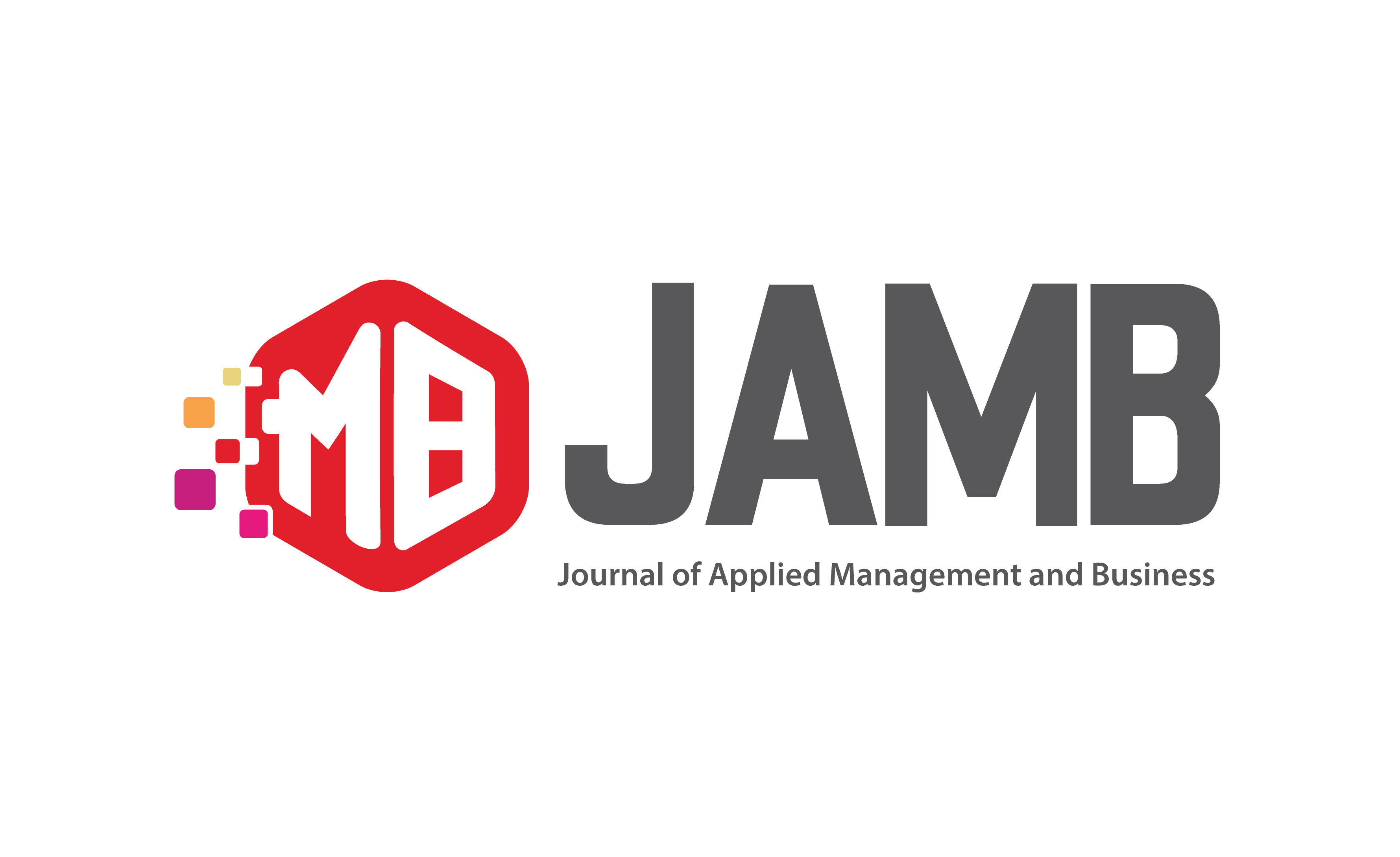Assessing the Economic Impact of the Pantawid Pamilyang Pilipino Program (4Ps) in the Philippines : A Systematic Review
DOI:
https://doi.org/10.37802/jamb.v6i1.1030Keywords:
Conditional cash transfer, Economic impact, Pantawid Pamilyang Pilipino Program (4Ps), Poverty reductionAbstract
This systematic review examines the impact of the Pantawid Pamilyang Pilipino Program (4Ps) on poverty reduction, education, healthcare utilization, and economic stability in the Philippines. Following the preferred reporting items for systematic reviews and meta analyses (PRISMA) guidelines, this study synthesizes findings from peer reviewed articles, government reports, and policy papers. Results indicate that 4Ps has significantly improved school enrollment, healthcare access, and household consumption, contributing to overall human capital development. However, challenges persist, including program dependency, targeting inefficiencies, misallocation of grants, and gaps in healthcare service utilization. Comparative analysis highlights regional disparities, with rural beneficiaries benefiting more from education and health services, while urban households demonstrate better financial management. Thematic synthesis reveals that employment effects remain mixed, as male household members show increased labor participation, whereas female employment remains unchanged. Policy recommendations emphasize strengthening livelihood programs, improving grant monitoring, addressing targeting inefficiencies, and enhancing family development sessions (FDS) for long-term socio-economic impact. While 4Ps has contributed to poverty alleviation and social mobility, continued refinements in program implementation, inter-agency coordination, and financial sustainability are necessary to maximize its long-term impact. Future research should explore longitudinal assessments and alternative social protection mechanisms to improve the program’s effectiveness.
Downloads
References
L. Prencipe, T. A. J. Houweling, F. J. van Lenthe, and T. Palermo, "Do Conditional Cash Transfers Improve Mental Health? Evidence From Tanzania’s Governmental Social Protection Program," J. Adolesc. Health, vol. 69, no. 5, pp. 797–805, 2021. [Online]. Available: https://doi.org/10.1016/j.jadohealth.2021.04.033.
A. H. Hadna and M. W. Askar, "The Impact of Conditional Cash Transfers on Low-Income Individuals in Indonesia," Austrian J. South-East Asian Stud., vol. 15, no. 1, pp. 23–42, 2022. [Online]. Available: https://doi.org/10.14764/10.ASEAS-0067.
E. J. A. Ponce, "The Policy Process of the Philippines’ Conditional Cash Transfer Program: Analysis of the Pantawid Pamilyang Pilipino Program (4Ps)," Int. J. Res. Innov. Soc. Sci., vol. 6, no. 7, pp. 203–209, 2022. [Online]. Available: https://doi.org/10.47772/ijriss.2022.6714.
A. L. D. Cuizon and C. B. D. Cuizon, "Conditional Cash Transfer (CCT): 4Ps in the Lens of Philippine Decentralization," Thammasat Rev., vol. 25, no. 1, pp. 202–223, 2022. [Online]. Available: https://doi.org/10.14456/tureview.2022.9.
M. Bustos et al., "Examining the Association Between Household Enrollment in the Pantawid Pamilyang Pilipino Program (4Ps) and Wasting and Stunting Status Among Children Experiencing Poverty in the Philippines: A Cross-Sectional Study," Asia-Pac. J. Public Health, vol. 35, no. 6–7, pp. 420–428, 2023. [Online]. Available: https://doi.org/10.1177/10105395231189570.
D. J. Herrera et al., "Mixed-method study on the association between inclusion to conditional cash transfer program and the multiple faces of malnutrition in children and adolescents aged 3 to 19 years: a school-based evidence from Caraga Region, the Philippines," BMC Pediatr., vol. 23, no. 1, 2023. [Online]. Available: https://doi.org/10.1186/s12887-023-04438-8.
C. Ramos et al., "Compliance, livelihood support, and challenges of the Pantawid Pamilyang Pilipino Program of the local government unit," Technium Soc. Sci. J., vol. 54, pp. 263–275, 2024. [Online]. Available: https://doi.org/10.47577/tssj.v54i1.10609.
W. Dodd et al., "Limits to Transformational Potential: Analysing Entitlement and Agency within a Conditional Cash Transfer Program in the Philippines," Soc. Policy Soc., pp. 1–18, 2022. [Online]. Available: https://doi.org/10.1017/s1474746422000215.
J. Obligado, "The role of conditional cash transfers in enhancing socio-economic well-being in Nueva Ecija, Philippines," Int. J. Public Policy Admin. Res., 2024. doi: 10.18488/74.v11i3.3933.
R. Diaz, "Effects of Pantawid Pamilyang Pilipino Program (4Ps) and other Conditional Cash Transfer (CCT) Programs of Low and Middle-Income Countries on Human Development," Sapienza: Int. J. Interdiscip. Stud., vol. 2, pp. 2–11, 2021. doi: 10.1596/34211.
B. De Los Reyes et al., "Rang-Ay Babaen ti 4Ps: Its Impact to Selected Ilokano Beneficiaries in Santiago, Ilocos Sur, Philippines," Am. J. Interdiscip. Res. Innov., 2022. doi: 10.54536/ajiri.v1i1.451.
M. Flores et al., "Pantawid Pamilyang Pilipino Program (4Ps): Its Effect on the Academic Performance of Student-Beneficiaries in Calaba National High School in the Philippines," J. Public Admin. Gov., 2019. doi: 10.5296/JPAG.V9I2.14762.
D. Boca et al., "Conditional cash transfer programs and household labor supply," Eur. Econ. Rev., 2021. doi: 10.1016/J.EUROECOREV.2021.103755.
C. Capulong and A. Cuevas, "The Effectiveness of Conditional Cash Transfer Program: A Case of Rural and Urban Beneficiaries in Philippines," J. Econ. Res. Soc. Sci., 2024. doi: 10.18196/jerss.v8i1.20726.
R. F. Frufonga, "The Pantawid Pamilyang Pilipino Program (4Ps) in Iloilo, Philippines: an evaluation," Asia Pac. J. Multidiscip. Res., vol. 3, pp. 59–65, 2015.
G. Initiative, "Boosting Human Capital in the Philippines through Conditional Cash Transfers," World Bank Human Capital Project, 2020. doi: 10.1596/34211.
E. Dadap-Cantal et al., "Targeting versus social protection in cash transfers in the Philippines: Reassessing a celebrated case of social protection," Crit. Soc. Policy, vol. 41, pp. 364–384, 2021. doi: 10.1177/02610183211009891.
A. Orbeta et al., "Reassessing the Impact of the Pantawid Pamilyang Pilipino Program: Results of the Third Wave Impact Evaluation," Res. Pap. Ser., 2023. doi: 10.62986/rps2023.06.
N. Mangotara, "Exploring the Effectiveness of Pantawid Pamilyang Filipino Program (4Ps) Family Development Sessions: Understanding, Challenges, and Impact on Exiting Household Beneficiaries in Marawi City," Int. J. Multidiscip. Res., 2024. doi: 10.36948/ijfmr.2024.v06i03.21159.
F. De Jesus and W. Villanueva, "Satisfaction Level of the Beneficiaries of Pantawid Pamilyang Pilipino Program (4Ps)," Am. J. Soc. Law, 2023. doi: 10.54536/ajsl.v2i2.1535.
M. Alinsunurin, "Governmentality and gendered realities: experiences from the Philippines’ cash transfer programme," Dev. Pract., vol. 31, pp. 334–343, 2020. doi: 10.1080/09614524.2020.1839019.
R. Ambong and A. Gonzales, "Health Expenditure and Utilisation of Poor Families in a Low-Income Community under the Philippine Conditional Cash Transfer Program," J. Health Manag., vol. 26, pp. 116–123, 2024. doi: 10.1177/09720634231225014.
Downloads
How to Cite
Issue
Section
License
Copyright (c) 2025 Journal of Applied Management and Business

This work is licensed under a Creative Commons Attribution 4.0 International License.











